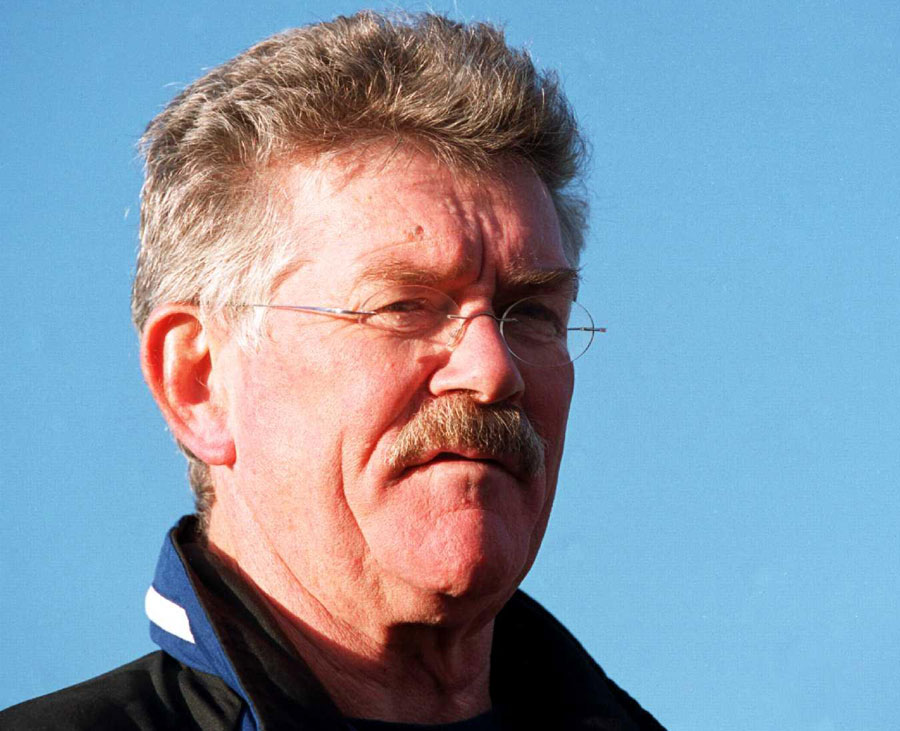|
France
Narbonne say 'merci' to the Australians
February 12, 2014

Bob Dwyer has been instrumental in the rebuild of French club Narbonne © PA Photos
Enlarge
Narbonne is one of the grandest names in French club rugby, and, thanks to some Australian help,the club once again is dreaming of a return to the elite. The club currently sits fifth in France's Rugby Pro D2, occupying the final play-offs place with just 10 matches of the regular season to be played. Since relegation from the top tier in 2007, Narbonne are yet to make the play-offs. If they do qualify this season, it will prove quite a comeback for Narbonne. French champions in 1979, they have in recent years been in freefall - on and off the pitch - to the extent that the club was threatened with relegation to the third-tier amateur league because of the parlous state of its finances. The change of fortune came in 2011 when Narbonne was bought by an Australian investment fund, FGM, which specialises in sporting takeovers and which was on the lookout for a historical French club on the lookout for a fresh start. Headed by Bob Dwyer, the coach who guided Australia to World Cup success in 1991, FGM chose Narbonne, a club nestled in the southern French rugby heartland of Languedoc-Roussillon in the south-west. The new Aussie owners installed one of their own, Anthony Hill, who played for the Orange-and-Blacks and never left, as the club's president. At first, the takeover by the Australians was not met with universal approval. FGM brought with them not limitless resources but instead a rugby version of Moneyball. They were determined to make Narbonne, with a debt of around €1 million when FGM took over, sustainable off the pitch as much as on it; this meant trimming the books. Two other experienced Australians have been central to Narbonne's renaissance: flanker Rocky Elsom, who won 75 caps for the Wallabies, and lock Justin Harrison, a World Cup finalist in 2003. Elsom, 31, who arrived at Narbonne as one of the main shareholders of FGM, said: "We needed to make savings on 17 contracts. We had to recruit a large number of unknown players. I was not the most popular person in town at that time." Harrison, brought in as head coach, was responsible for implementing the cost-cutting policies. Rigorous and demanding, Harrison has been able to put his stamp on the team. "He wants the guys very involved in their work," says Hill, adding that Harrison demands "200%" effort in training. The first two seasons were decidedly average - Narbonne finished 14th and ninth - but that allowed Harrison to take the pulse of Pro D2. He persuaded Chris Whitaker, the Waratahs and Leinster scrum-half to sign up to his project; Whitaker brought an authority to the club that had been missing in recent seasons. Unwanted ex-professionals and amateur players were recruited, as were forgotten talents such as French utility back Vincent Rattez, the former Racing Metro player who has been a revelation this season. Narbonne picked up Sakiusa Navakadretia, the Fijian winger, from Fed 1 side Saint-Etienne; he has scored 11 tries this season. Lock Romain Manchia, formerly of Toulon, has also proved an inspired acquisition. The result of this targeted recruitment and tight control of the club's finances, means Narbonne's success is coming despite only having the 10th-largest budget (€4.6 million) in the division. But now comes the hard part: with just 10 games to go, Narbonne have to keep pace with play-offs rivals La Rochelle and Pau. And on Sunday they face a crucial clash with another play-offs rival, Agen, who are presently in second. © AAP
|
Live Sports
Communication error please reload the page.
-
Football
-
Cricket
-
Rugby
-
- Days
- Hrs
- Mins
- Secs
F1 - Abu Dhabi GP
Abu Dhabi Grand Prix December 11-131. Max Verstappen ()
2. Valtteri Bottas (Mercedes)
3. Lewis Hamilton (Mercedes)
4. Alexander Albon ()
5. Lando Norris ()
6. Carlos Sainz Jr ()
-
ESPNOtherLive >>
Darts - Premier League
Golf - Houston Open
Snooker - China Open
Tennis - Miami Open

